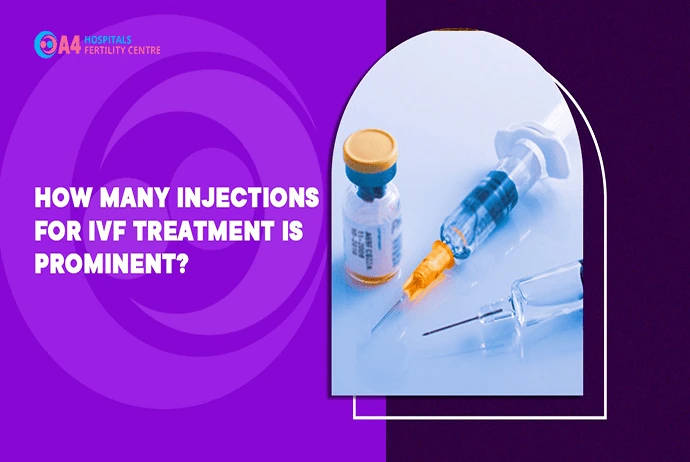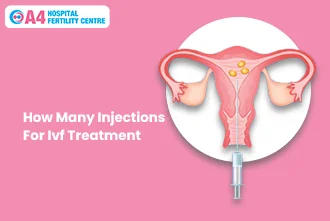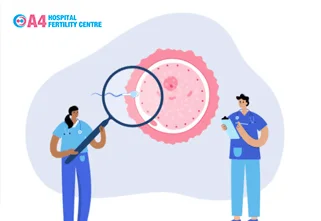
Dr. Aruna Ashok MBBS, MS OG, DNB OG
- Clinical Director

In vitro fertilisation (IVF) has become a groundbreaking tool that has helped many couples realise their dream of having children.
IVF is one of the most common ways to treat infertility. It includes a series of medical procedures and medicines that must be done at just the right time.
Even though injections are an important part of IVF, the number and types of injections can change from person to person.
In this blog post, we'll talk about some of the most common shots used in IVF treatment and explain how they fit into the process of getting pregnant.


Before going into detail about the shots used in IVF treatment, it's important to understand the process itself.
IVF is the process of fertilising an egg with sperm outside of the body, usually in a lab.
The fertilised egg is then put back into the uterus, where it will hopefully grow and become a baby.
GnRH agonists are often used to stop the normal changes in hormones that happen during a woman's menstrual cycle.
By giving GnRH agonists, early egg release from the ovaries can be briefly stopped.
With this suppression, the egg harvesting process during IVF can be better controlled and timed.
Most of the time, GnRH agonists are given through daily subcutaneous shots or nasal sprays.
GnRH antagonists work like GnRH agonists, but they work faster.
Most of the time, these injections are given during the stimulation part of IVF treatment to stop the woman from ovulating too soon.
By blocking the effects of GnRH, the eggs don't come out of the ovaries too soon. Most GnRH blockers are given as injections under the skin.
During IVF treatment, FSH shots are a key part of getting the ovaries to make more mature eggs.
Over the course of a few days, these injections are given every day to help ovarian follicles grow and form.
FSH shots can be given in different amounts and can be made to fit the needs of each patient.
Most of the time, people give themselves subcutaneous shots.
Once the ovarian follicles have grown to the right size, hCG shots are given to help the eggs finish maturing and be released.
This shot gets the body ready for the removal of mature eggs, which are necessary for fertilisation to work.
Most of the time, hCG injections are given as a single amount and are put under the skin.
IVF treatment helps people get pregnant by giving them a number of injections that are meant to increase the chances of having a healthy baby. GnRH agonists, GnRH antagonists, FSH, and hCG are some of the most common drugs used in IVF. Together, these injections help control the menstrual cycle, activate the ovaries, and make mature eggs come out. The number and type of shots may change based on the person's needs and the treatment plan.
A4 Fertility Hospital has state-of-the-art equipment and a team of experienced doctors who know how to help couples who are having trouble getting pregnant. Throughout the whole IVF process, including when shots are given, the hospital's caring staff is there to help and give advice. By giving people personalised treatment plans, A4 Fertility Hospital makes sure that they get the best injections for their needs.
In conclusion, it's hard to say enough about how important shots are in IVF treatment. These shots are essential because they help control the menstrual cycle, stimulate the ovaries, and make mature eggs come out. Fertility clinics like A4 Fertility Hospital help patients through the complicated process of IVF treatment with their knowledge and care. This increases the chances of a successful pregnancy and the fulfilment of their hopes of becoming parents.